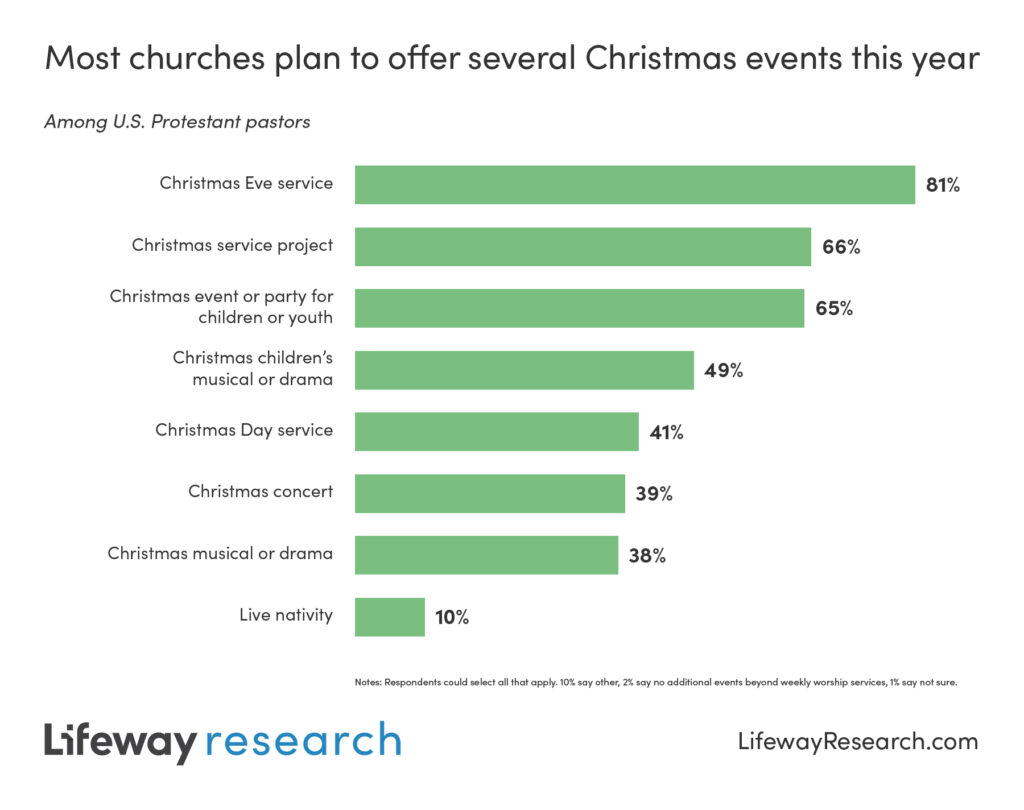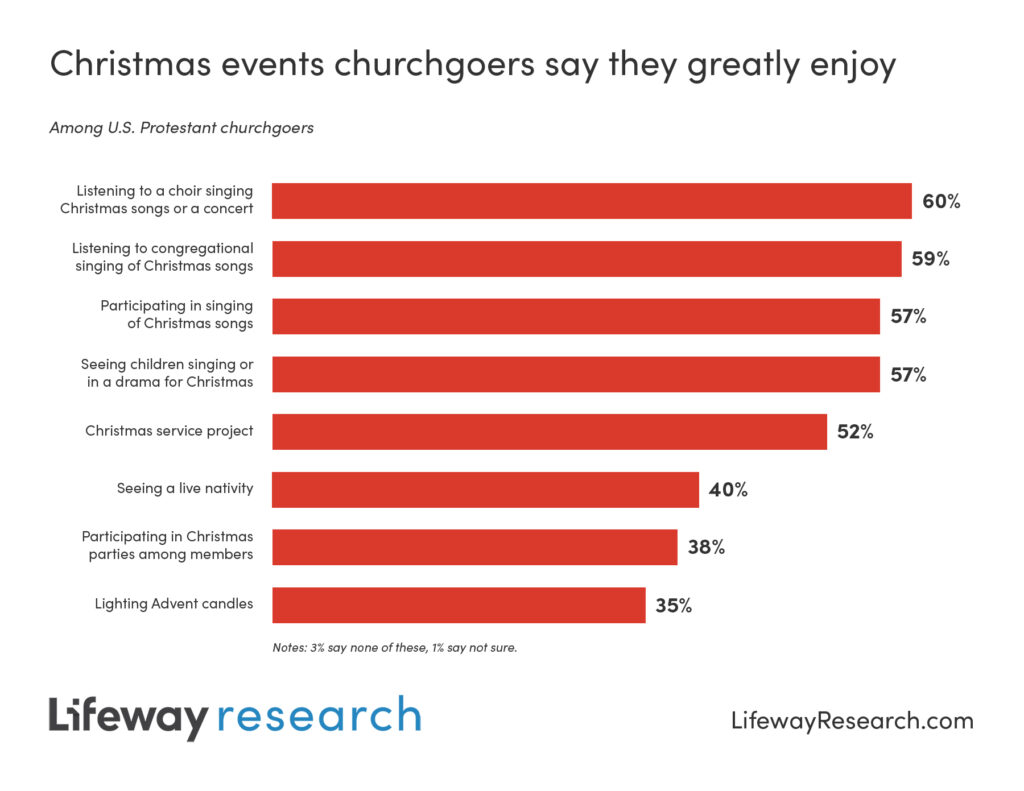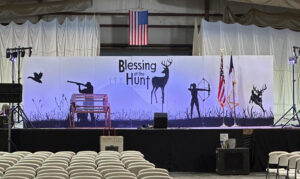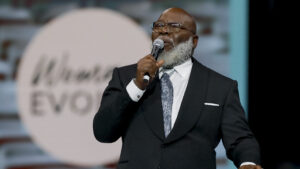
BRENTWOOD, Tenn. — Churches are offering Christmas events and activities beyond weekly worship services this Christmas season, which will make many churchgoers happy.
On average, pastors are planning four events or activities to help their churches celebrate Christmas this year, according to a Lifeway Research study. A Christmas Eve service tops the list, with 4 in 5 pastors (81 percent) planning to offer such a service this year in addition to weekly worship services. Most churches are also planning to offer a Christmas service project (66 percent) and a Christmas event or party for children or youth (65 percent).

Half of pastors plan to have a Christmas children’s musical or drama (49 percent). Around 2 in 5 plan on having a Christmas Day service (41 percent), Christmas concert (39 percent) or Christmas musical or drama (38 percent). Another 1 in 10 say they are planning to offer a live nativity (10 percent) or planning something else (10 percent). Few say they do not plan to have any additional events beyond weekly worship services (2 percent) or aren’t sure (1 percent).
“In recent years many churches have trimmed the number of programs they have during the week. But Christmas celebrations still fill the calendar for the typical church,” said Scott McConnell, executive director of Lifeway Research. “Most churches plan Christmas events for all ages and create experiences that go beyond worship services.”
Churchgoers say they enjoy going to an average of four church-led Christmas events from a list of potential events. Most say they greatly enjoy listening to a choir singing Christmas songs or a concert (60 percent), listening to congregational singing of Christmas songs (59 percent), participating in singing Christmas songs (57 percent), seeing children singing or in a drama for Christmas (57 percent) or participating in a Christmas service project (52 percent).
Two in 5 churchgoers say they greatly enjoy seeing a live nativity (40 percent) and participating in Christmas parties among members (38 percent). Another 35 percent say they enjoy lighting Advent candles, while 3 percent don’t greatly enjoy any of these things, and 1 percent aren’t sure.
“Some churchgoers may attend a church that doesn’t offer Christmas events they have enjoyed a lot in the past,” McConnell said. “So, they may participate in activities at neighboring churches as they celebrate Christmas.”
Which churches are planning what?
Pastors of the smallest churches, those with fewer than 50 in attendance, are least likely to say they are offering a Christmas concert (27 percent), a musical or drama (28 percent), a children’s musical or drama (31 percent), a Christmas event or party for youth or children (46 percent) or a Christmas service project (56 percent).
Additionally, pastors of the oldest churches, those started prior to 1900, are more likely than the newest churches, those started between 2000 and 2023, to have a Christmas concert (42 percent v. 29 percent). Pastors at churches started before 1900 (74 percent) and between 1900 and 1949 (68 percent) are more likely than those at the newest churches (53 percent) to offer a Christmas service project. Pastors of the oldest churches are also the most likely to plan a Christmas Eve service (89 percent).
However, the oldest pastors, those 65 and older, are the least likely to say their church is planning a Christmas event or party for children or youth (55 percent) or a Christmas Eve service (74 percent).
“The smallest churches are much less likely to offer Christmas activities that require a lot of people to produce because they just don’t have those people,” McConnell said. “But small churches are just as likely as larger ones to offer a Christmas Eve or Christmas Day service.”
Denominationally, Methodist pastors are the most likely to say they are planning a Christmas concert (53 percent). Lutheran pastors are the most likely to say they will offer a children’s musical or drama (70 percent) and a Christmas Day service (71 percent). Restorationist movement churches are the least likely to offer a Christmas Eve service (52 percent).
While Hispanic pastors are among the most likely to say their church will offer a live nativity (21 percent), African American pastors are the least likely to say they will be having a Christmas Eve service (46 percent). And mainline pastors are more likely than evangelical pastors to say they are having a Christmas Day service (48 percent v. 41 percent).
Churchgoer enjoyment
Females are more likely than male churchgoers to say they enjoy singing Christmas songs (61 percent v. 52 percent), listening to a choir singing Christmas songs or a concert (64 percent v. 55 percent), seeing children singing or in a drama for Christmas (62 percent v. 51 percent), lighting Advent candles (37 percent v. 31 percent), participating in a Christmas service project (59 percent v. 43 percent) and seeing a live nativity (46 percent v. 32 percent).

Churchgoers aged 50-64 (62 percent) and 65 and older (66 percent) are more likely than those 18-34 (45 percent) and 35-49 (43 percent) to say they greatly enjoy singing Christmas songs. Similarly, the oldest churchgoers are the most likely and the youngest churchgoers are the least likely to say they enjoy listening to congregational Christmas singing (71 percent and 38 percent). Churchgoers aged 50-64 (63 percent) and 65 and older (67 percent) are more likely than those 18-34 (50 percent) and 35-49 (50 percent) to say they greatly enjoy listening to a choir or concert. And churchgoers aged 50-64 (63 percent) and 65 and older (61 percent) are more likely than those 18-34 (50 percent) and 35-49 (47 percent) to say they greatly enjoy seeing children singing or in a drama for Christmas. However, the youngest adult churchgoers, those 18-34, are more likely than the oldest, those 65 and older, to enjoy participating in Christmas parties among members (45 percent v. 33 percent).
“Much like some radio stations, many churches spend several weeks each year singing Christmas songs. But the enjoyment of these songs in churches is not uniform, with far fewer young adults enjoying this custom,” McConnell said.
Churchgoers who attend worship services at least four times a month are more likely than those who attend one to three times a month to say they greatly enjoy singing Christmas songs (62 percent v. 50 percent) and listening to congregational singing of Christmas songs (63 percent v. 54 percent).
Additionally, churchgoers with evangelical beliefs are more likely than those without to enjoy singing Christmas songs (62 percent v. 51 percent), listening to congregational singing (65 percent v. 53 percent), seeing children sing or perform a Christmas drama (63 percent v. 51 percent), participating in service projects (56 percent v. 47 percent) and seeing a live nativity (44 percent v. 35 percent).
Meanwhile, those in the largest churches, 250-499 (59 percent) and 500 or more (59 percent) are more likely than those in the smallest churches, fewer than 50 (46 percent) and 50-99 (48 percent), to say they greatly enjoy participating in Christmas service projects. Similarly, those attending churches with worship attendance of 250-499 (49 percent) are more likely than those with fewer than 50 (38 percent), 50-99 (37 percent) or 100-249 (39 percent) to say they enjoy live nativities.
For more information, view the churchgoer report and pastor report or visit LifewayResearch.com.
Methodology
The online survey of 1,008 American Protestant churchgoers was conducted Sept. 19-29, 2023, using a national pre-recruited panel. Respondents were screened to include those who identified as Protestant/non-denominational and attend church worship services at least once a month. Quotas and slight weights were used to balance gender, age, region, ethnicity, education and religion to more accurately reflect the population. The completed sample is 1,008 surveys. The sample provides 95 percent confidence that the sampling error from the panel does not exceed plus or minus 3.2 percent. This margin of error accounts for the effect of weighting. Margins of error are higher in sub-groups.
The phone survey of 1,004 American Protestant pastors was conducted Aug. 29-Sept. 20, 2023. The calling list was a stratified random sample, drawn from a list of all Protestant churches. Quotas were used for church size. Each interview was conducted with the senior pastor, minister or priest at the church. Responses were weighted by region and church size to more accurately reflect the population. The completed sample is 1,004 surveys. The sample provides 95 percent confidence that the sampling error from the panel does not exceed plus or minus 3.2 percent. This margin of error accounts for the effect of weighting. Margins of error are higher in sub-groups.
Evangelical Beliefs are defined using the NAE Lifeway Research Evangelical Beliefs Research Definition based on respondent beliefs.
Respondents are asked their level of agreement with four statements using a four-point, forced choice scale (strongly agree, somewhat agree, somewhat disagree, strongly disagree). Those who strongly agree with all four statements are categorized as having Evangelical Beliefs
- The Bible is the highest authority for what I believe
- It is very important for me personally to encourage non-Christians to trust Jesus Christ as their Savior
- Jesus Christ’s death on the cross is the only sacrifice that could remove the penalty of my sin
- Only those who trust in Jesus Christ alone as their Savior receive God’s free gift of eternal salvation














